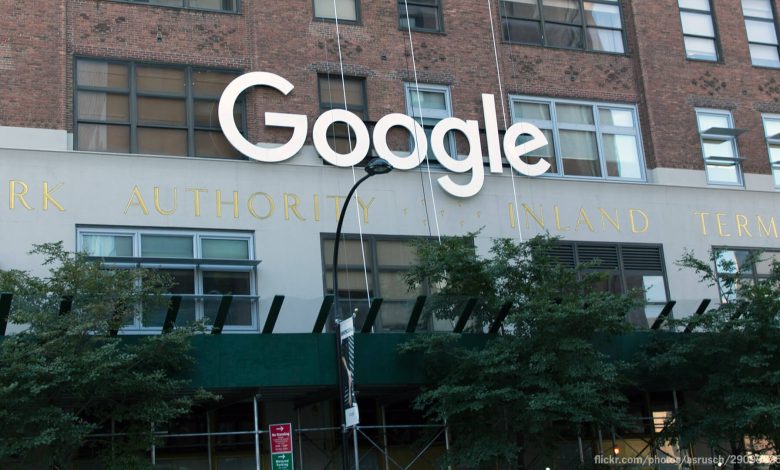Misquoted and misunderstood: Why many in the search community don’t believe the Wall Street Journal about Google search

On a Friday morning, I hopped into an Uber outside the Google NYC offices following a meeting with Google search employees when my phone started buzzing. The Wall Street Journal had published a bombshell article titled, "How Google Interferes With Its Search Algorithms and Changes Your Results."
At first, I thought the story might have uncovered something significant. However, as I read through it while traveling to my office in West Nyack, NY, my disbelief grew. It wasn’t about any alleged actions by Google, but rather about how the Wall Street Journal could release such a critical piece with no substantial evidence to back it up.
The subtitle read, "The internet giant uses blacklists, algorithm tweaks and an army of contractors to shape what you see." This statement demonstrated a fundamental misunderstanding of search mechanics and revealed flaws in the WSJ’s reporting, as noted by my colleague Greg Sterling.
I had spoken with several Wall Street Journal reporters about this issue back in March and April, and their lack of understanding of how search functions was clear. Even basic differences between organic (free) and paid listings (ads) escaped them. It seemed their primary aim was to create a sensational story about Google abusing its power.
While Google is far from perfect, the WSJ report was riddled with inaccuracies. Allow me to elaborate on these points.
Before diving into the specifics, if this is your first time reading my work, let me introduce myself. I’ve been reporting on search, particularly Google search and its algorithms, for about 16 years. I’ve written countless stories and documented numerous algorithm updates. I’ve praised and criticized Google extensively, arguably more than anyone.
Over the years, I’ve spoken to dozens, if not hundreds, of Google engineers, representatives, and top-level search executives. I’ve also interviewed many former Google employees. My experience has given me deep insights into Google’s operations.
Incorrect Claims
The Wall Street Journal article either demonstrated a profound misunderstanding of search or, worse, carried an anti-Google agenda.
A Google spokesperson responded by emphasizing their transparency on topics covered in the article, including Search rater guidelines and combating misinformation. They noted that the report contained outdated anecdotes and inaccuracies, failing to reflect current policies.
The methodology: The WSJ tested just 17 words and phrases from billions of daily queries over a 17-day cycle. During this period, Google’s algorithms could have undergone up to 50 updates. This limited scope and timeframe undermined the validity of their findings.
Misquoted individuals: Glenn Gabe, an SEO industry expert interviewed by the WSJ, reported being misquoted and having his off-the-record statements published. This misrepresentation further discredits the report.
Above Allegations
The WSJ claimed Google manipulated algorithms to favor large businesses, citing eBay as an example. However, Google explicitly states that advertisers cannot buy better placement in search results. Moreover, eBay has had its own issues with Google rankings over the years.
The report also criticized Google’s handling of autocomplete suggestions, knowledge panels, and featured snippets, but these are separate from core search results. Google has well-documented policies for exceptions in features like autocomplete to prevent inappropriate or false information.
Blacklists: The WSJ accused Google of maintaining blacklists for certain search terms. I’ve never seen evidence supporting this claim. Google’s actions in tweaking autocomplete suggestions align with publicly stated policies and serve to maintain content quality and appropriateness.
Internal Debates and External Influences
It’s natural for Google employees to discuss algorithms and potential changes. However, there’s no proven evidence that Google has altered algorithms to push any particular agenda. Google’s Project Owl, for instance, aimed to improve result accuracy and reduce fake news—efforts in line with their commitment to authority in search results.
The WSJ also suggested that Google’s contractors manipulate search results based on internal feedback, a claim that doesn’t hold water. These contractors merely report on search quality, akin to customer feedback surveys.
Conclusion
Claims that Google favors large businesses have been around for years. Larger companies often have better resources to create high-quality content and user experiences, leading to better search results performance, not due to Google’s favoritism.
Google’s organic search team operates independently of the ads team. Any advertiser’s advantage in organic search results is unfounded.
In conclusion, while Google isn’t without flaws, the WSJ article misrepresents many aspects of their operations. The SEO community recognizes this, and prominent figures have voiced their disbelief and disappointment. This unfounded criticism undermines the hard work of SEO professionals who rely on transparency and rigor in their practice.
The search industry strives to improve client’s search success through diligent, ethical work in SEO, not through manipulation or unethical practices. The WSJ’s article is an unfortunate blemish on both Google Search and the SEO community, filled with inaccuracies and sensationalism rather than facts.



